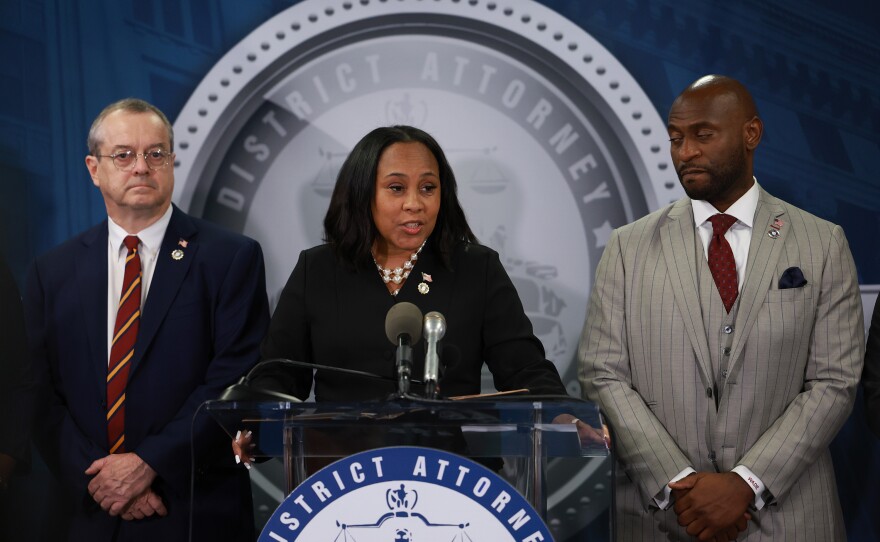“Fulton County, Fani Willis, Nathan Wade, Donald Trump, racketeering case, judicial ruling, ethical concerns, legal proceedings, 2024 presidential election”
“A Georgia judge has ruled that Fulton County District Attorney Fani Willis can continue prosecuting the racketeering case against former President Donald Trump, despite her relationship with special prosecutor Nathan Wade. This decision comes amid debates over ethical considerations and potential conflicts of interest, paving the way for the case to potentially proceed before the 2024 presidential election.”
In Atlanta, Georgia, a significant legal ruling has emerged in the racketeering case involving former President Donald Trump and several co-defendants. Fulton County Superior Court Judge Scott McAfee decided that District Attorney Fani Willis should not be disqualified from the case despite concerns about her relationship with special prosecutor Nathan Wade. The controversy centered on Willis’ romantic involvement with Wade, raising questions about potential conflicts of interest.

The court’s resolution allowed Willis to remain in her role by accepting Wade’s resignation, thus preventing a halt in the case proceedings. Wade’s departure was framed as a sacrifice for the progression of the case and the broader interests of democracy. The decision underscores the delicate balance between legal ethics and the practicalities of judicial administration.
Critics, including Trump’s legal team, expressed dissatisfaction with the ruling, arguing that it downplayed the alleged prosecutorial misconduct. They vowed to explore all legal avenues to challenge the case, which they believe should not have been initiated.
Judge McAfee clarified that the issue at hand was the “appearance of impropriety,” rather than an actual conflict of interest, which would have necessitated Willis’ disqualification. He emphasized that the law does not automatically equate poor judgment with a conflict of interest, highlighting the necessity for the legal process to focus strictly on the substantiated facts and applicable laws.
The decision carries significant implications, allowing the case to potentially proceed before the 2024 presidential election. It reflects a nuanced interpretation of legal ethics, balancing the need to address potential biases with the imperative to maintain judicial continuity.
The ruling also touched on broader themes of trust and perception in the legal system, with McAfee expressing concern about the public’s potential doubts regarding the case’s integrity. The judge’s skepticism about the timing of Willis and Wade’s relationship added another layer of complexity to the situation, emphasizing the importance of transparency and accountability in high-profile legal proceedings.
Overall, the ruling in Atlanta represents a pivotal moment in the ongoing legal saga surrounding Trump and his associates, highlighting the intricate interplay between personal relationships, ethical considerations, and the relentless pursuit of justice.